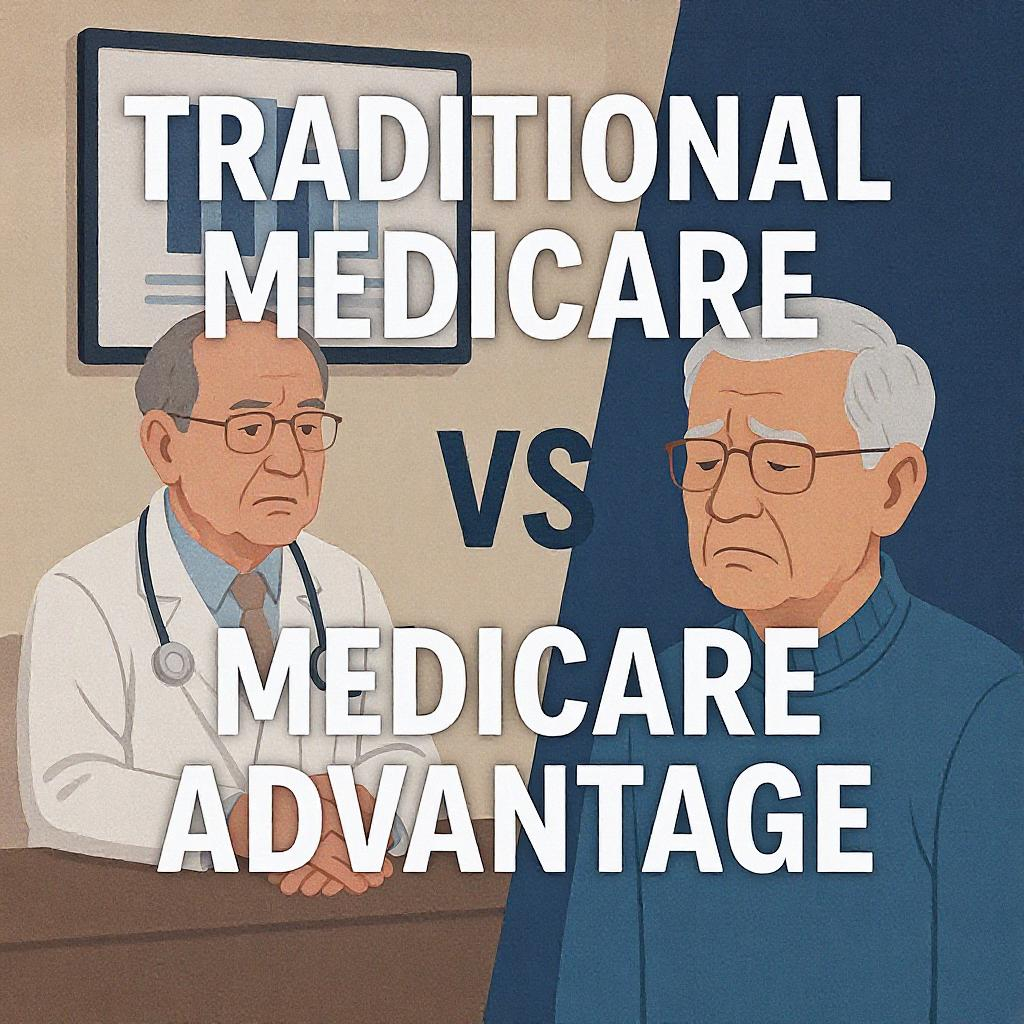Provider Choice and Flexibility: Your Doctors, Your Rules?
Traditional Medicare stands out for its expansive flexibility. Imagine being able to see virtually any doctor, specialist, or hospital in the entire United States, as long as they accept Medicare. No referrals needed, no geographic limitations – your coverage travels with you, whether you're at home or on a cross-country trip.
In contrast, Medicare Advantage plans typically operate within a defined network. This means you'll usually need to stick to a specific group of doctors and hospitals within a local or regional area. While emergencies are generally covered out-of-network, routine care often requires you to stay within the plan's chosen providers, and you might need referrals to see specialists. For some, this managed care approach offers simplicity; for others, it can feel restrictive.
Costs and Out-of-Pocket Limits: What Will You Pay?
The financial structures of these two options vary significantly:
- Traditional Medicare: After meeting your Part B deductible, you're generally responsible for a standard 20% coinsurance for most Part B services. One critical point: Traditional Medicare does not have an annual out-of-pocket maximum on its own. To cap these costs and cover deductibles and copayments, many opt to purchase a separate supplemental Medigap policy, which comes with its own premium.
- Medicare Advantage: These plans come with varying cost structures, which can include copays and deductibles. A major benefit for many is the built-in annual out-of-pocket maximum. Once you hit this limit, the plan covers 100% of your Medicare-covered services for the rest of the year, offering significant peace of mind against unexpected high medical bills. Some Medicare Advantage plans even boast low or zero-dollar premiums and often include prescription drug coverage, making them attractive for those looking for budget-friendly options.
Coverage and Extra Benefits: Beyond the Basics
What exactly is covered, and are there perks?
- Traditional Medicare provides coverage for hospital stays (Part A) and medical services (Part B). However, prescription drug coverage (Part D) and supplemental insurance (Medigap) are separate considerations that you'll need to purchase independently.
- Medicare Advantage plans are designed to be an all-in-one solution. They bundle hospital, medical, and usually prescription drug coverage into a single, convenient plan. Beyond the basics, many Medicare Advantage plans sweeten the deal with extra benefits that Traditional Medicare doesn't offer, such as dental, vision, hearing, and wellness programs. These added benefits can be a huge draw for those who want comprehensive coverage in one package.
Prior Authorization and Restrictions: Navigating Access to Care
Accessing certain services can also differ:
- Traditional Medicare is generally straightforward regarding prior authorization. You'll rarely need prior approval for services, which means fewer potential delays or restrictions when you need care.
- Medicare Advantage plans often require prior authorization for specific treatments or services. While designed to manage care and costs, this can sometimes lead to delays or limit access to certain procedures, so it's important to understand a plan's specific rules.
Geographic Coverage and Travel: Where Does Your Plan Go?
If you're a snowbird, a frequent traveler, or live in different states throughout the year, this is a crucial factor:
- Traditional Medicare is an excellent fit for those with a mobile lifestyle, as it provides coverage anywhere in the U.S. where Medicare is accepted.
- Medicare Advantage plans are typically tied to local or regional networks. Full coverage outside of your plan's service area is usually restricted to emergencies, making them less ideal for extensive travel.
Prescription Drug Coverage: Streamlined or Separate?
- With Traditional Medicare, you'll need to enroll in a separate Part D plan to get prescription drug coverage.
- Most Medicare Advantage plans include prescription drug coverage as part of the bundled package, simplifying your healthcare under one plan.
Supplemental Coverage (Medigap): Bridging the Gaps
- Traditional Medicare allows you the option to purchase a Medigap policy. These policies are designed to help cover your out-of-pocket costs like deductibles and coinsurance, offering an additional layer of financial protection.
- Medicare Advantage plans do not allow you to purchase a Medigap policy. Since Medicare Advantage plans often have their own out-of-pocket maximums and varying cost-sharing structures, Medigap policies are not compatible.
Making Your Decision: What's Right for You?
The "better" option isn't universal; it depends entirely on your personal circumstances and preferences:
- Choose Traditional Medicare if: You value the ultimate freedom to choose any doctor or hospital that accepts Medicare, desire nationwide coverage, and prefer the flexibility of adding separate prescription drug and Medigap policies to manage your costs.
- Consider Medicare Advantage if: You appreciate the convenience of bundled coverage (medical, hospital, drugs, and often extra benefits), prefer the security of an annual out-of-pocket maximum, and are comfortable with potentially lower premiums, network restrictions, and prior authorization requirements.
Ultimately, your decision should be a thoughtful reflection of your current and anticipated health needs, financial comfort level, how often you travel, and whether you prioritize broad provider access or a more managed, all-inclusive healthcare approach. Take the time to research, compare plans available in your area, and perhaps even consult with a licensed Medicare advisor to ensure you make the most informed choice for your future.
For more information and personalized guidance, please feel free to reach out to Vistamark Investments LLC. You can contact us at
312-895-3001, visit our website at
www.vistamarkllc.com, or send us an email to
info@vistamarkllc.com.
